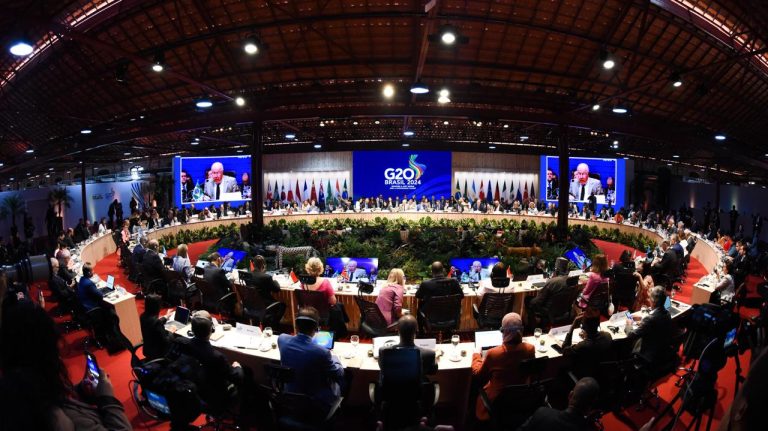Rio de Janeiro – Rio de Janeiro starts holding on Monday (22) a week that lives up to its title as the G20 Capital. Until Friday (26) there’ll be high-level meetings between economic officials from the bloc’s member countries, as well as events featuring ministers of social domains. One highlight will be the pre-launch of the Global Alliance against Hunger and Poverty.
Monday and Tuesday (23) will see the holding of the meeting of representatives of finance ministers and central bank governors from the member countries. The meeting will be part of the G20’s Finance Track and address economic topics such as international taxation and the reform of multilateral development banks. The event is held at the Windsor Barra Hotel in Barra da Tijuca.
Delegations from the countries will participate in talks to develop a joint document to be delivered to the finance ministers and central bank governors who will then meet on Thursday (25) and Friday (26). The substance of the Finance Track will be a major topic of the G20 summit which will gather heads of state and government of the group from November 18 to 19 in Rio.
In 2024 the presidency of G20 has been held by Brazil. One of the new additions suggested by the Brazilian government is the G20 Social, a move to make different society voices be heard at the discussions that’ll reach international leaders. As a way to bring social participation, the civil society was invited to speak during the meeting on Monday.
Alliance against Hunger
Elsewhere in the city of Rio, the Citizenship Action Cultural Center was elected to host the Development Ministers Meetings, which is part of the Sherpa Track, a more political arm of G20. Meetings start today and will feature Brazilian ministers, including Mauro Vieira, of foreign affairs, Simone Tebet, of Planning, Jader Barbalho Filho, of cities, and Anielle Franco, of racial equality.
Group of 20
The Brazilian G20 presidency’s term ends at November’s summit meet. G20 comprises 19 countries – Argentina, Australia, Brazil, Canada, China, France, Germany, India, Indonesia, Italy, Japan, Mexico, Russia, Saudi Arabia, South Africa, South Korea, Turkey, the United Kingdom, the United States – and two supranational unions – the African Union and the European Union. The members of the group account for nearly 85% of the gross world product, 75% of global trade, and two-thirds of the global population.
Read more:
UN reform a priority of G20 meetings
Translated by Guilherme Miranda




